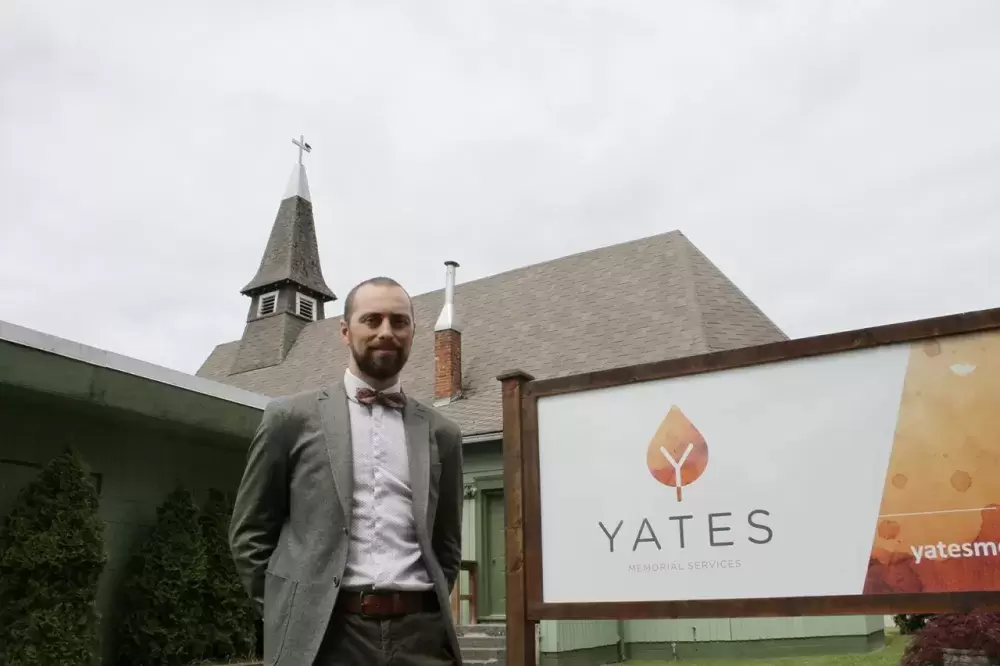How do families mark the passing of a loved one during the coronavirus pandemic, when physical distancing discourages hugging or a handshake?
It’s a dilemma facing funeral homes that have seen a steady stream of work since COVID-19 forced sectors of the economy to shut down in mid March.
The issue has been particularly challenging for Nuu-chah-nulth families, who have seen at least 15 deaths since the World Health Organization declared the pandemic in mid March. Following a time-honoured tradition of large gatherings, the passing of a loved one would often bring a funeral of over a hundred family members and friends. But with the province still under a state of emergency, gatherings of over 50 are prohibited according to an order from B.C.’s provincial health officer to control the spread of COVID-19, bringing unprecedented restrictions to funerals.
Judith Sayers, president of the Nuu-chah-nulth Tribal Council, has seen the pandemic leave many negative impacts on Nuu-chah-nulth people, including the inability to follow cultural ways when one passes on to the other side.
“In normal times, we would all go to a home or place where the family is gathering to mourn the loss of the loved one, provide our mutual support and help feed the family so they don’t have to worry about that while mourning their loss,” she said. “For us, attending at the home of the family brings medicine, helps them get through a really hard time, tell stories of the one that passed on and help with the planning of the services to be held.”
“Now, we cannot attend at that home due to physical distancing,” continued Sayers. “You can only communicate with the family through phone, computer conferencing or other messaging through Facebook or other means.”
Meanwhile, funeral homes have been forced to adapt. During the early weeks of the pandemic, services were limited to 20 to mitigate the risk of transmission. Since late April, new coronavirus cases in B.C. have steadily declined, and the introduction of Phase 2 restrictions in mid May allowed funerals to increase to 40.
“I think that we’re probably doing more little ceremonies now than we normally would,” said Bradd Tuck, operations manager for Yates Memorial Services, which runs funeral homes in Parksville and Port Alberni. “With the restrictions happening in care homes where you can’t enter and you can’t come in to do that, a lot more people are wanting to be a part of those viewings.”
Social distancing requirements remain in place, meaning that besides members of the same household, service participants must remain six feet apart.
“The physical closeness that is normal during a funeral isn’t happening right now, and it’s definitely putting a strain on people,” said Tuck. “It’s a hard challenge to be standing there six feet from someone wanting to give them a hug, but not being able to.”
Yates has had no shortage of business from Nuu-chah-nulth families since March, including one week that brought three Ahousaht deaths. They have stocked up on supplies like sanitizer and gloves, and spread viewings over a longer stretch of the day to limit the volume of people visiting the reception centres. Tuck has found that the biggest challenge is limiting invitations.
“I think that’s probably the most difficult decision families are needing to make, is who do we include and how do we decide who is allowed to come,” he said. “That’s something we’re not able to offer too much guidance on, it’s more up to the family to decide who would benefit most from being at the service.”
What funeral homes have been able to provide is the option of sharing the small service with others through an online video stream via Facebook Live or Zoom. This too can bring tough decisions for families, as some elders might not be comfortable with a live broadcast while immediate family wants it. By law the funeral home is obligated to leave this decision with the next of kin, said Tuck, although anyone on camera must also consent to being videotaped.
“Some people are very comfortable with that, they want it to happen, others find that it’s too public and they want the ceremony to be private,” he said. “We’re dealing with the aspect of how do you share things but also allow for privacy and the respect of the families so that there’s not too much shared, because those are intimate moments that are quite private during a funeral service.”
Sayers noted that the video streams can bring challenges for families who follow the Nuu-chah-nulth tradition of putting away photographs of a loved one for one year after the passing.
“Many are planning services after the pandemic is over. Others have Facebook pages where people can leave pictures or their memories,” she said. “As our custom is to not have pictures of the person out for a year, the space for pictures is up for a limited time.”
The number of active coronavirus cases in B.C. has declined to just over 200, but many First Nations remain on high alert due to the risk of the virus spreading in a remote community with little access to medical care. Despite the difficulty in following social distancing protocols during a funeral, Tuck has seen families remain cautious during the many small gatherings over the last few months.
“I would say, though, that everyone has been governing themselves quite well,” he said. “We haven’t had to intervene and say, ‘Hey, you need to back off in this setting.’ People understand the risks and respect that.”







